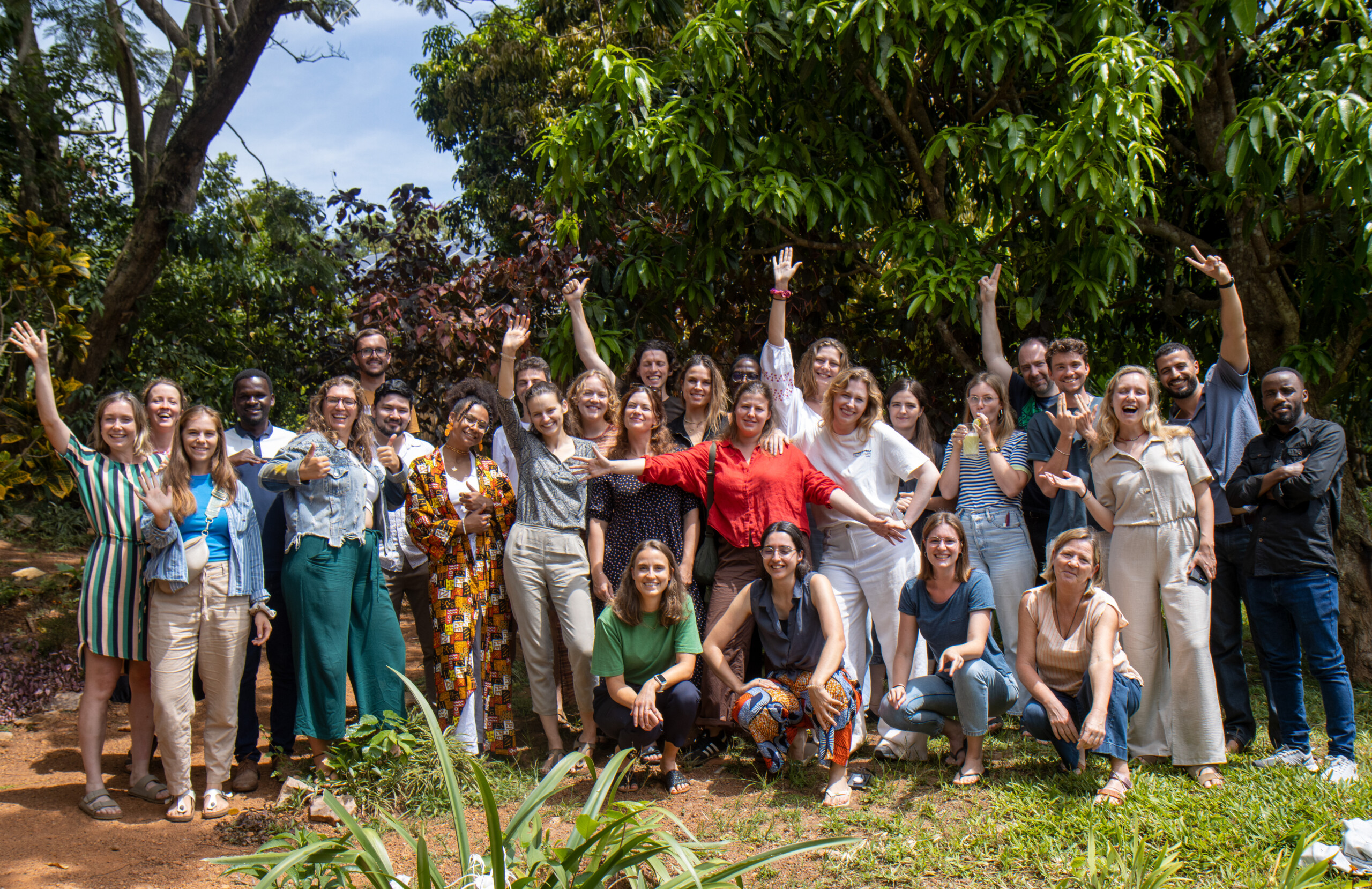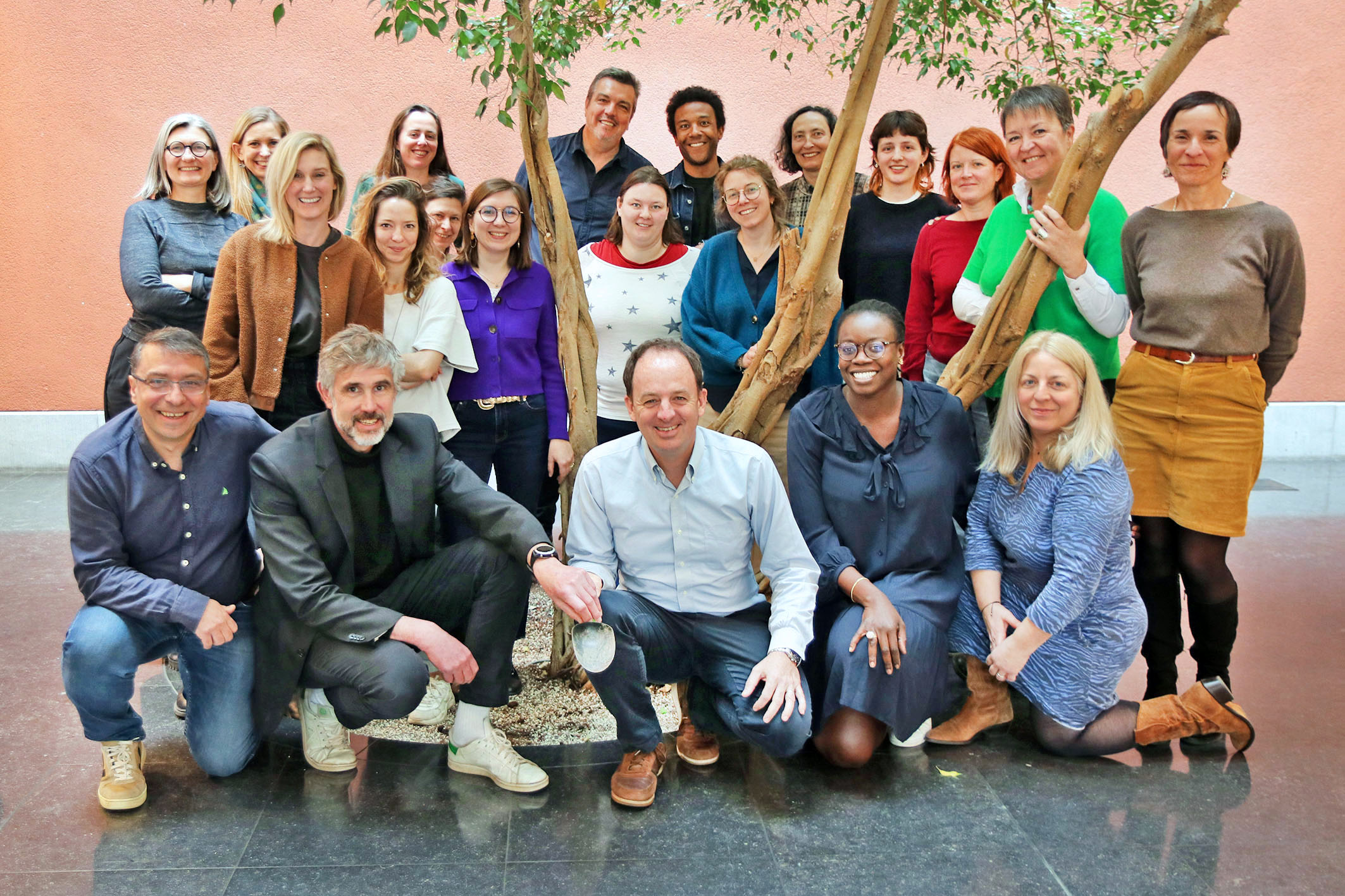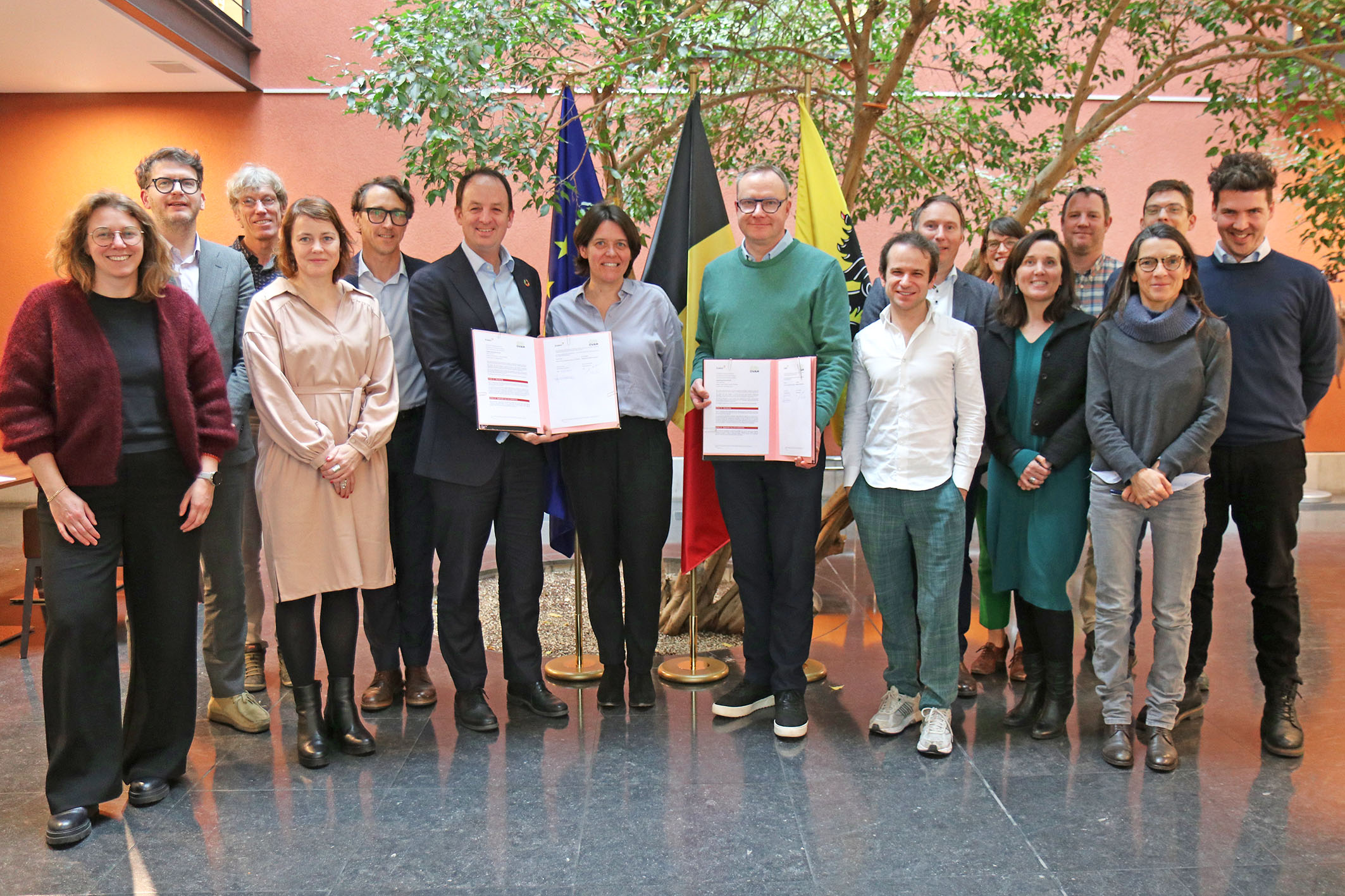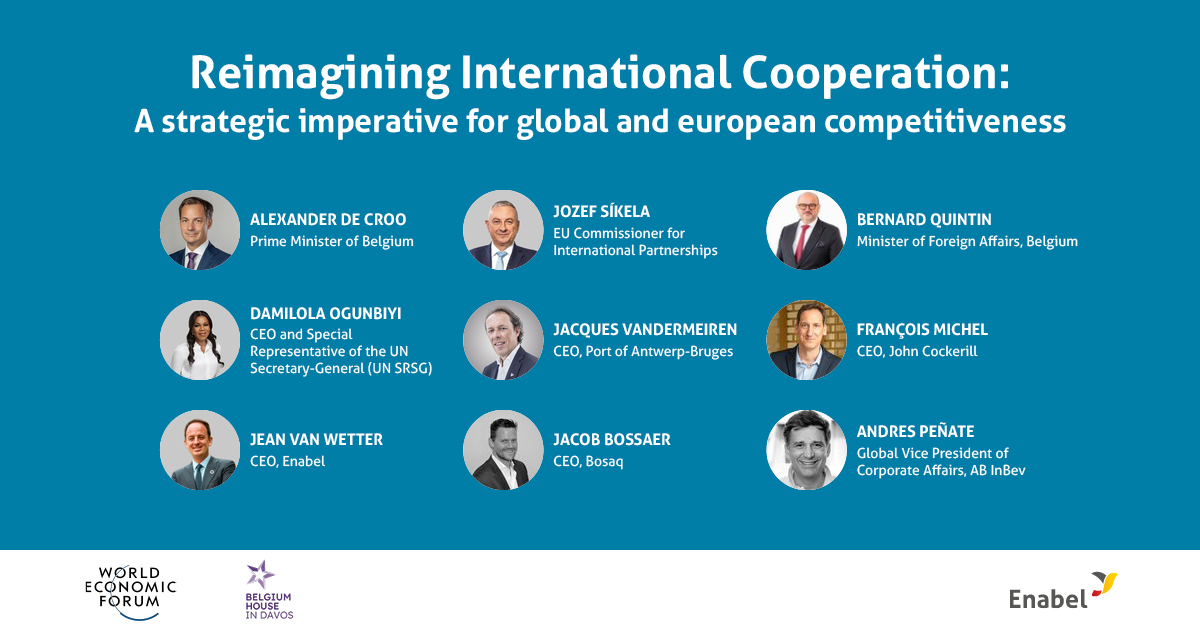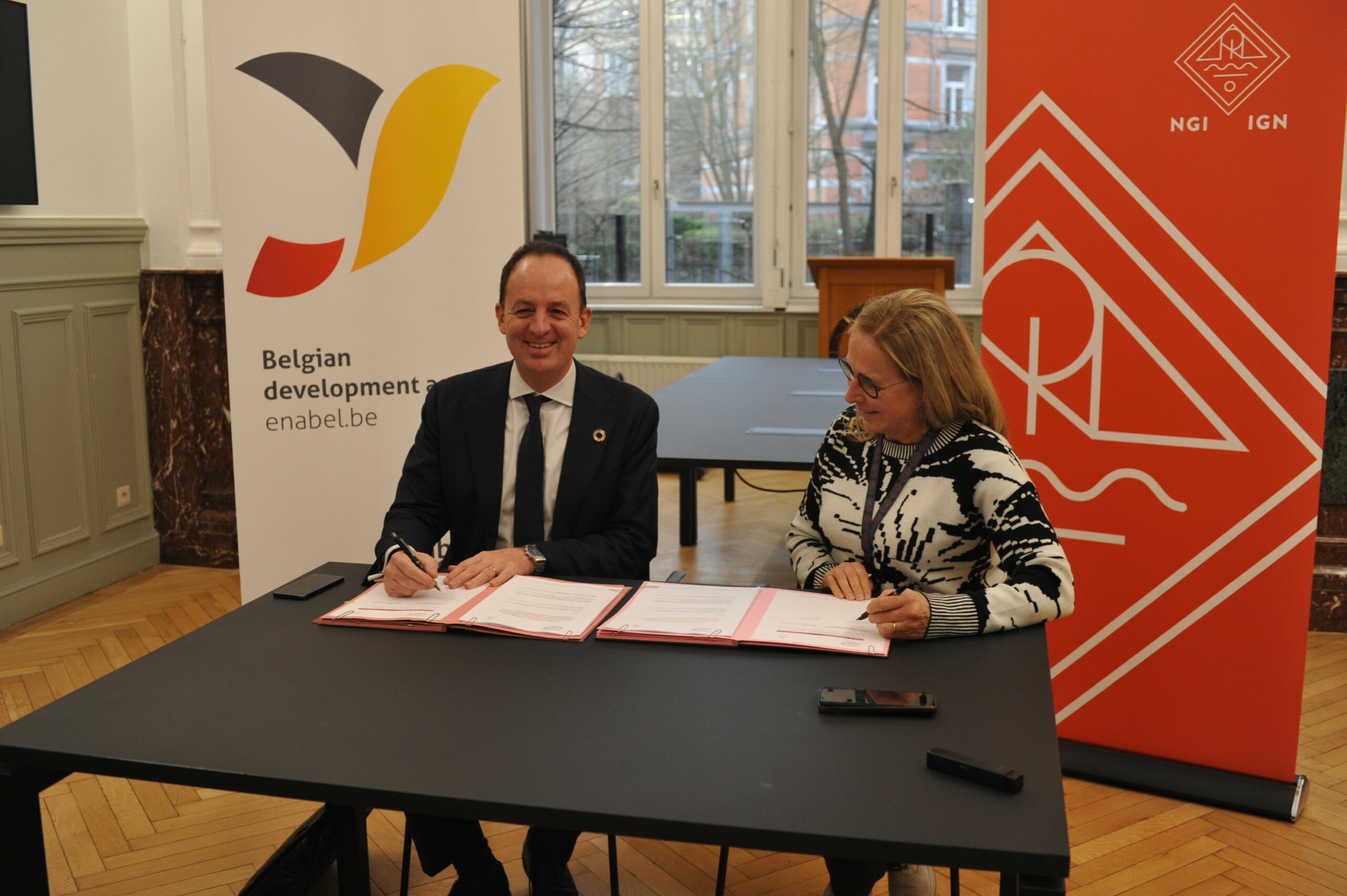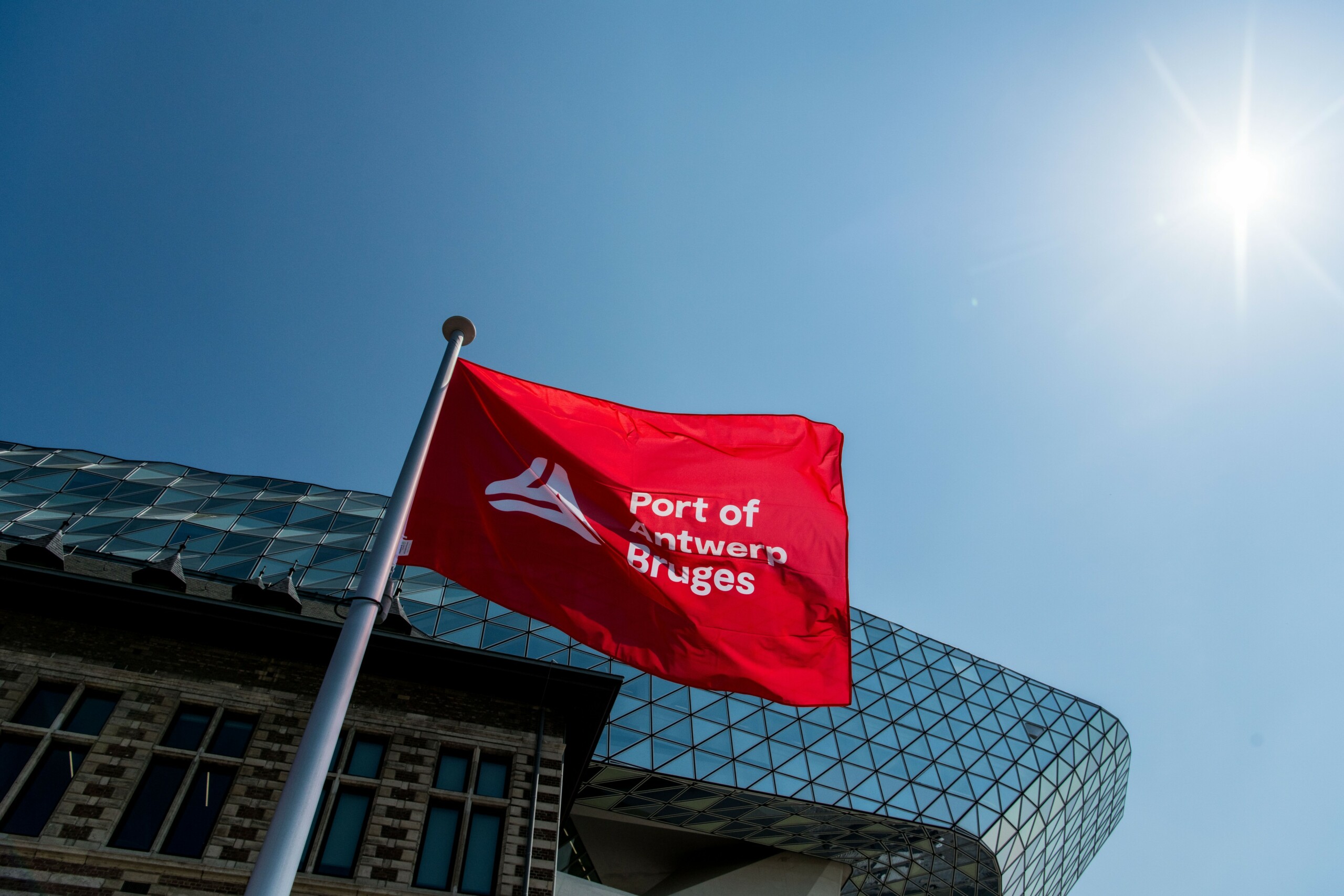News
18 December 2024
Internships at Enabel: a springboard for future career and life plans
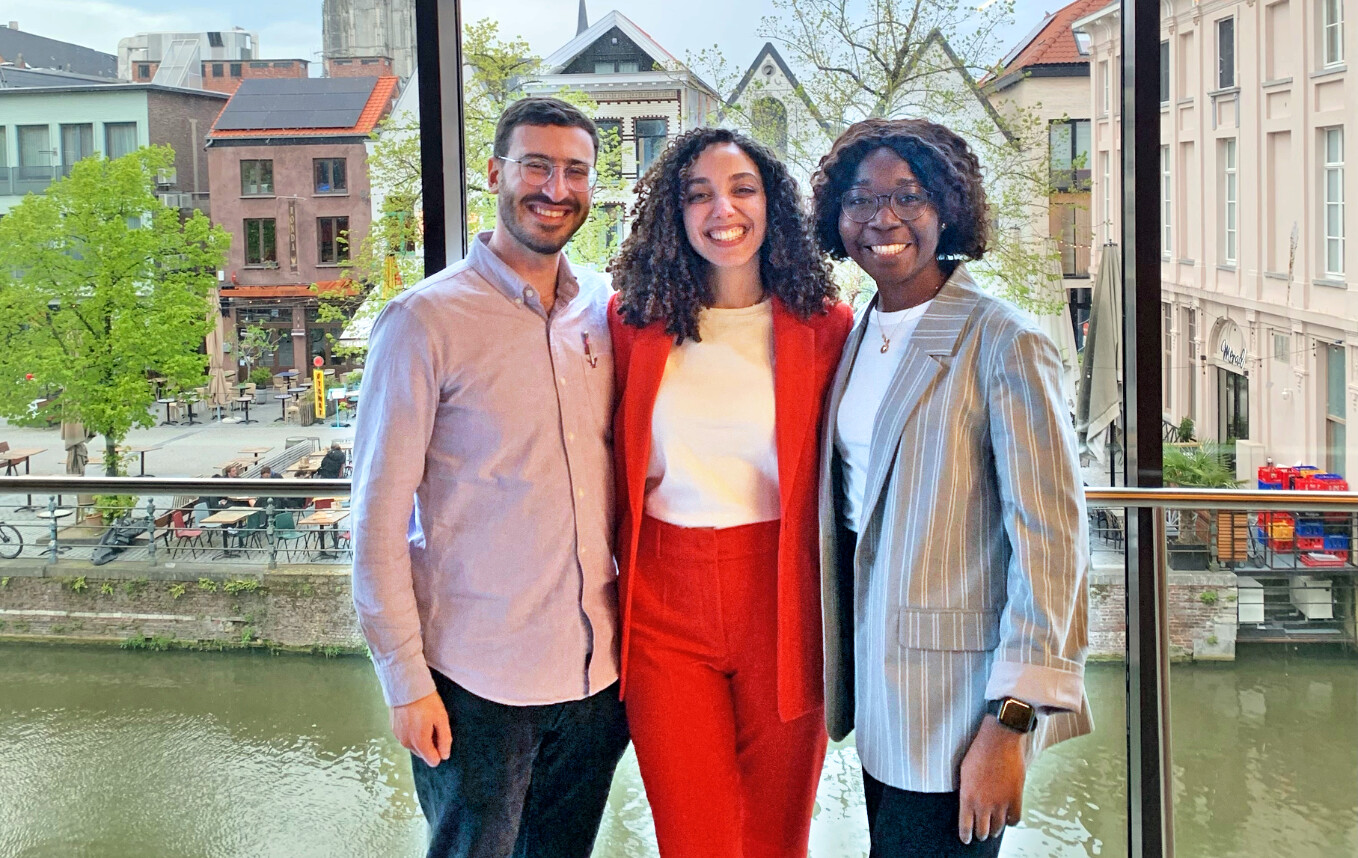
Enabel is always happy to welcome interns in its different departments and units. “We invest in interns,” says Karel Gyselinck who leads Enabel’s Health Unit. “We give them space to observe, learn and grow. And they come with fresh eyes, give hands-on support to the team.” Meet Patrick Rached, Sohaila Osman and Aunalia Magne Foungue, who have been interns at Enabel’s Health Unit over the past months. This is what they think of the experience.
How did you end up at Enabel? What are your plans?
Sohaila Osman: I worked as a dentist in Egypt. When I moved to Belgium with my partner, I came across the Advanced Master’s in Global Health. Through my promoter, I got onto this project in Palestine and got to know Enabel. My promoter put me in touch with Enabel.
Patrick Rached: Soon after I obtained my medical degree, I moved from Lebanon to Belgium to do my master’s in public health. For that, we need to do an internship. This is how I ended up at Enabel. I was triggered by Enabel’s broad health-system strengthening approach.
Aunalia Magne Foungue: I knew Enabel from when I worked as a doctor in Guinea. In the capital Conakry there is a lot of waste in the streets. On my way home from my hospital job, every day I came along one such place with a lot of waste. One day, there was no more waste. I just saw a wall with the logo of Enabel. I was really captivated by the logo. A friend was actually working on that very project, the Sanita Clean City Project. He told me that Enabel also did public health projects. So, many years later, as a public health student in Belgium, I submitted my internship application and was accepted.
Did Enabel do a good job as a hosting organisation?
Sohaila Osman: From the beginning, I felt trust and autonomy and respect, which gives you the potential to flourish… I think it could be challenging for people with a introverted personality or younger interns.
Patrick Rached: Everybody at Enabel was very friendly and competent. The most important part for me was that Enabel gives you a voice. You are not the intern who does back office work. Instead, you get to participate in decisions. You get to state your mind and are actively part of the project. That is an amazing part of the internship with Enabel.
On the downside, the only thing is that staff do not always have the time to supervise us permanently, even though people would gladly help us when we asked. I took that as an opportunity to develop my proactivity and autonomy.
Aunalia Magne Foungue: I had the opportunity to be autonomous but at busy times I was sometimes lost on what to do. So, I took decisions, but I made sure to have the person in charge in copy, so decisions were known. You do not get the opportunity everywhere to take such initiatives.
What did the internship experience mean to you, to your personal learning path as a health sector expert?
Sohaila Osman: My plan was to work in global health. I was working on my paper of an Enabel project in Palestine but I felt I really needed to get in touch with what exactly is done on the ground. I needed to get exposed to as many experiences and projects as possible to get a grip on this. And this definitely happened at Enabel.
Patrick Rached: It was a hands-on experience with an institution that works on a practical project. I helped organise a health conference. Doing so, I developed a network that I still rely on to this day.
And it even landed me a one-year job with Enabel. So, it was the perfect opening door for my learning and professional experience.
Aunalia Magne Foungue: An internship in the health unit at Enabel was a great opportunity for me with my medical background. Sometimes at university you have to simulate a project. Now, I was involved in preparing a real project in Burundi: I was very happy because I came at the project’s onset. I was involved in every step of planning, budgeting, analysis of the context. Eventually, the European Union approved the project. So I was very happy.
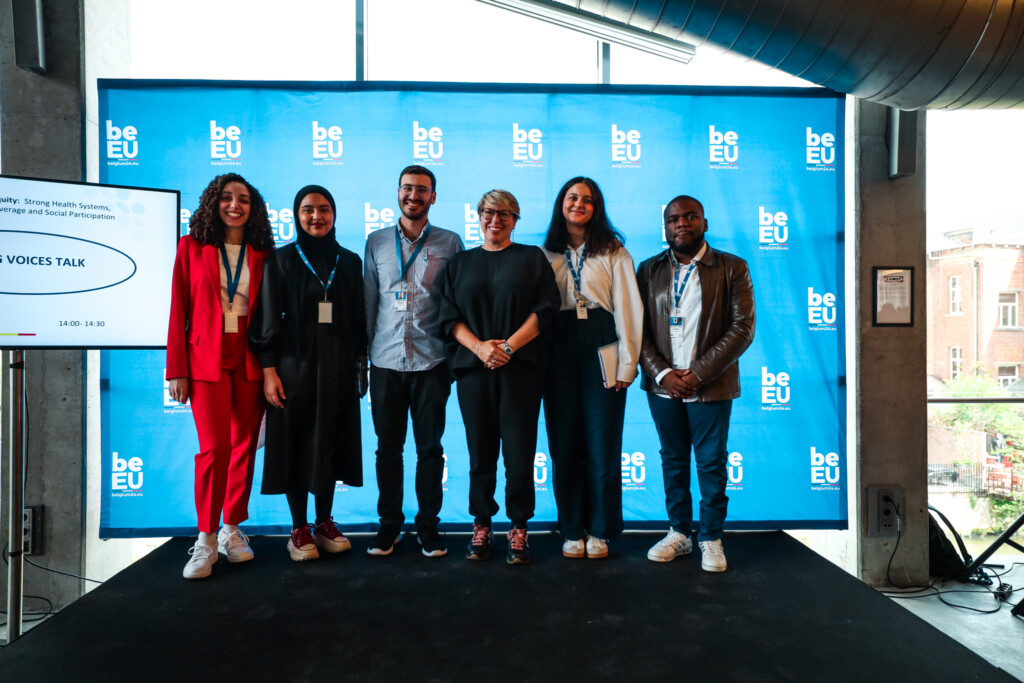
You are now at key points in your career, finishing a thesis or completing a job term. What prospects do you have after your time at Enabel?
Sohaila Osman: My partner and I move to Copenhagen. For me, there is nothing concrete yet but I keep options open. A PhD is an option too.
Patrick Rached: I have a new job. I am now involved at ULB, in academic research, in public health. There is a link between my research project and the Belgian Cooperation. Somehow, I will still be meeting with people from Enabel. So, I am not leaving international cooperation; only I move on to academic research.
Aunalia Magne Foungue: I really want to work on public health systems. One incident with a patient who lacked funds to receive proper care during my medical training at a hospital in Cameroon made me decide to reconsider my life choices. The social protection system was falling short. I became aware that a systemic approach is very important to address this and that it was something I wanted to work at in my future career. I would love to pursue this path.
Is there anything about the Enabel culture, mindset or ecosystem that you will look for in your future career plans?
Sohaila Osman: Because at the Enabel office no one has an assigned desk, I sometimes got to speak with staff from the agricultural unit and broaden my scope beyond health. That is something I actually really liked. And I would definitely love to work in an environment with initiatives that look at a same problem from different perspectives.
Patrick Rached: I experienced how everybody at Enabel is involved. The people in the field can initiate a whole process, telling what the problem is, what the solution could look like. Everybody has a voice. That is very valuable.
Aunalia Magne Foungue: I would like to mention innovation as something I would look for in my future career, also across sectors.

